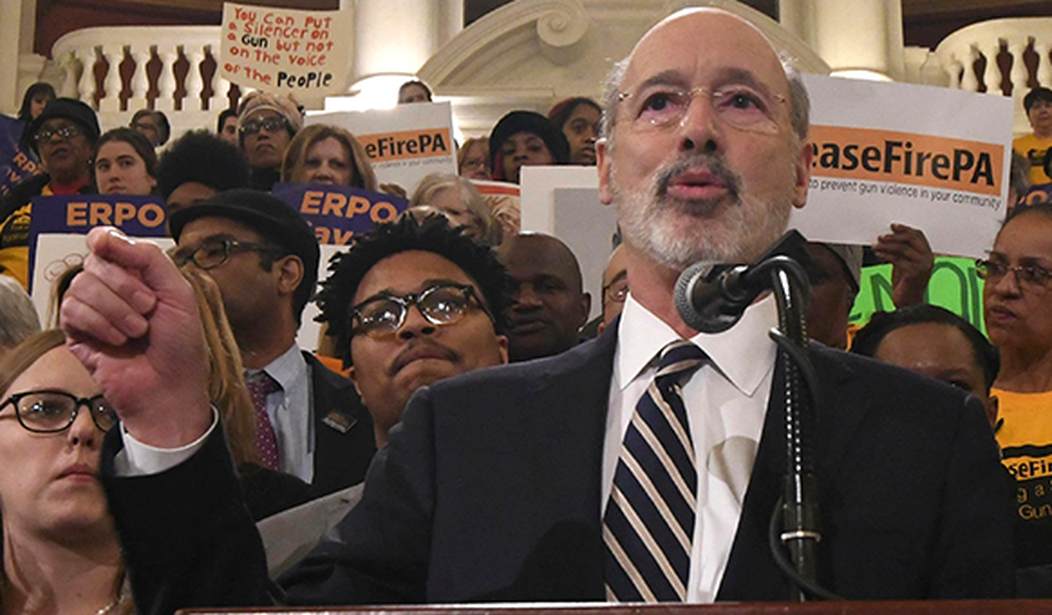Pennsylvania Governor Tom Wolf is proposing that the state legalize recreational marijuana in an effort to raise tax revenues lost during the Covid pandemic. Ironically, his draconian shutdown of much of the state over the past six months has seriously impacted the PA economy, and hence the state’s tax revenue.
But it’s a pipe dream. In Colorado, for every dollar gained from marijuana taxes, taxpayers spend $4.50 to mitigate the effects of legalization. For Pennsylvania, any short term revenue increase will be swallowed up by the serious long term social and economic effects of legalization.
In fact, if the governor is interested in “following the science,” the science tells us that legalizing marijuana is a bad idea. The Centennial Institute, a public policy think tank in Colorado, produced a study in 2018 on the social and economic effects of legalizing marijuana, and the results are staggering.
Roughly half a million Coloradans are moderate or heavy marijuana users – they use pot anywhere from 6 to 31 times per month. Denver is now known as the “Mile High City” for more than one reason.
There are huge health costs associated with this drug use. In 2017 alone, Colorado spent a whopping $350 million for cannabis-related hospitalizations. Add in low-weight babies, sedentary lifestyles, drug poisoning, and drug treatment, and the total was over $470 million that year. ER visits and hospitalizations rose 22% after legalization.
Interestingly, crime rates don’t necessarily increase with marijuana legalization. Another study in 2018 on the effect of marijuana legalization in Washington State and Colorado found generally no statistically significant increase in reported violent crime. Not surprisingly, after retail pot sales started in CO, there was an initial increase in property crimes, including a significant increase in auto thefts. But there are still costs associated with law enforcement, from DUI court costs to organized crime investigations and juvenile arrests.
Recommended
Kids age 12-17 make up 9% of pot users in Colorado. They face reduced cognitive ability, memory decline, and problems with attention span and executive functioning. Cops are called to high schools with much greater frequency now. Suspensions and expulsions more than doubled over two years. Marijuana-related dropouts cost the state (and themselves!) another $423 million in lost earnings.
People understandably react to the idea of putting a dollar value on a human life. Economists say that a human life is worth $10 million. But marijuana doesn’t kill anyone, right?
Wrong. Driving high can be lethal. Elevated THC levels raise the risk of an accident by 3 to 7 times. According to the Centennial Institute study, 69% of recreational marijuana users in Colorado admit to driving while high at least once. Far worse, 27% admit to driving high on a daily basis.
In 2017 alone, there were 136 fatal accidents caused by drivers using THC. Overall, Colorado’s traffic deaths have increased by an average of 75 per year since the legalization of marijuana, according to the journal JAMA Internal Medicine. That’s $750 million a year, according to economists, a cost not even included in the Centennial report.
A final thought on marijuana tax revenue. In Colorado, taxpayers were told that the revenue would be used for schools and drug treatment. While that’s largely been true, the marijuana tax fund has been treated as a “piggy bank” according to some lawmakers, being spent on a variety of unrelated programs. PA taxpayers should keep a close eye on whether marijuana legislation spells out exactly how the revenue would be spent. While Colorado has recently passed the $1 billion mark in pot taxes, the economic and social costs have far exceeded the revenue.
Members of both political parties in the Pennsylvania legislature should insist that Governor Wolf follow the science and recognize the long term effects and costs of legalizing recreational marijuana. There is no way to get millions of dollars in tax revenue from pot without raising other taxes on Pennsylvanians to cover all of the associated costs. The idea is all smoke and mirrors.
Dr. Tom Copeland is Director of Research at the Centennial Institute and a Professor of Politics at Colorado Christian University. He grew up in Pennsylvania and earned his Ph.D. at the University of Pittsburgh.

























Join the conversation as a VIP Member